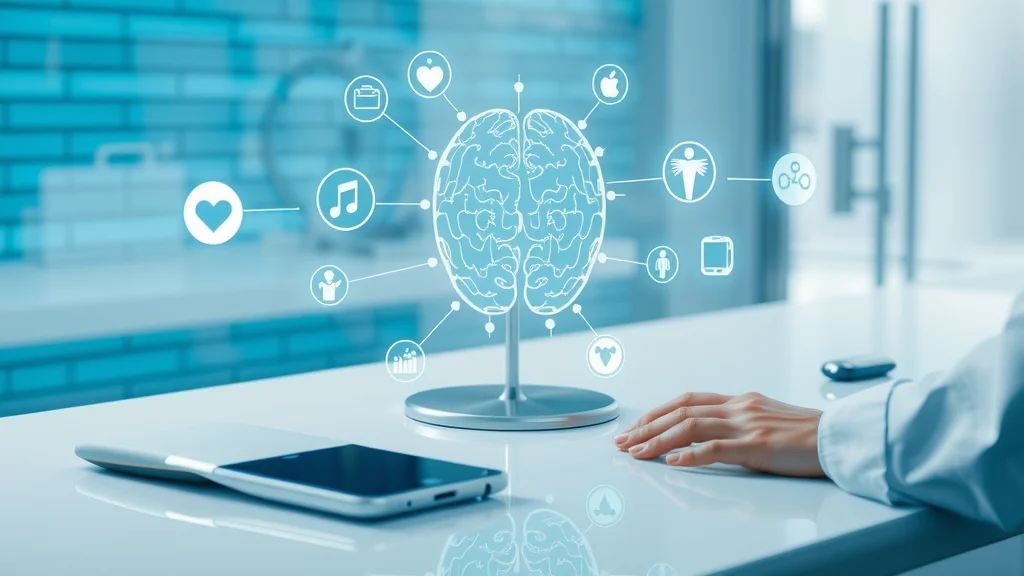Did you know over 80% of hospitals globally now use health technology tools that didn’t exist a decade ago? This dramatic shift is quietly revolutionizing everything from how patients manage chronic illness to how doctors save lives in real time. Whether it’s smart wearables tracking your heart rate, AI-powered systems catching diseases early, or virtual visits that bring healthcare to your living room, health tech is reshaping how care is delivered and changing lives everywhere. In this article, we'll dive into the amazing possibilities—and the big questions—that come with this new age of digital health.
A New Era: How Health Tech is Revolutionizing Daily Life
Health tech isn’t just for futuristic hospitals or Silicon Valley startups anymore—it’s in homes, wrists, and pockets around the world. From smart watches that monitor heart rhythms to apps reminding people to take medication, digital health tools empower individuals to take control of their wellbeing like never before. More than half of adults in the U.S. have already used fitness trackers or mobile health apps; globally, digital health tools are making reliable care possible for those in remote and underserved areas. Advancements in health data analytics and artificial intelligence let healthcare providers detect early warning signs, optimize treatments, and improve patient outcomes with unprecedented speed. As tech companies and care organizations race to innovate, the healthcare system is being rebuilt in real time—making it easier for us all to improve health, wherever we are.

What You'll Learn: Exploring Health Tech and Its Real-World Impact
- How health tech innovations redefine traditional care
- Latest digital health advancements propelling patient outcomes
- Critical opinions and expert insights on health technology
- Careers and opportunities in health tech sectors
Defining Health Tech: Scope, Types, and Growth
Understanding Health Technology and Its Evolution
The journey of health technology has moved rapidly from basic thermometers and stethoscopes to today's world of connected digital health solutions. A decade ago, a hospital’s greatest tech assets might have been bulky imaging machines and paper medical files. Now, the rise of information technology and electronic health records has overhauled the entire healthcare system, making care more efficient and personalized. Modern health tech companies innovate constantly, developing smart medical devices, remote monitoring tools, and advanced platforms that process enormous amounts of health data. These advancements allow for early disease detection, ongoing patient monitoring, and improved coordination between care organizations. As tech companies continue to invest in artificial intelligence and user-friendly digital health interfaces, both patients and care providers benefit from tailored, data-driven solutions, transforming patient outcomes and overall healthcare delivery like never before.

| Health Tech Type | Example | Impact on Care |
|---|---|---|
| Wearables | Fitness trackers | Real-time health data |
| Artificial Intelligence | Diagnostic imaging | Faster, more accurate |
| Health Data Analytics | EMR software | Informed decision-making |
Health Tech Innovations: Key Trends Shaping Digital Health
Artificial Intelligence in Health Tech
Artificial intelligence (AI) is transforming the health technology landscape and rapidly advancing how care organizations and healthcare providers work. AI’s predictive analytics power enables earlier detection of illnesses—from cancer to heart disease—by analyzing massive health data streams and identifying patterns humans might miss. Diagnostic imaging enhanced by AI is not only faster but also more accurate, reducing misdiagnosis and speeding up treatment plans. In care organizations, AI-driven digital health systems help personalizing treatments, automatically adjusting medication dosages or mapping patient risk factors, boosting patient outcomes and provider efficiency. As more health tech companies invest in AI, the boundary between the healthcare workforce and smart machines blurs—in the best way possible, empowering care providers to focus on what truly matters: connection, empathy, and achieving the best for patients.
Wearables, Remote Monitoring, and Connected Devices
The explosion of smart wearables—from heart rate-monitoring watches to connected glucose monitors—shows that health tech is no longer confined to hospitals or clinics. These devices collect continuous streams of health data, allowing remote patient monitoring that makes care more proactive and preventive than ever. Patients with chronic conditions can avoid emergency hospital visits by catching irregularities early, thanks to real-time alerts and seamless sharing with healthcare providers. Meanwhile, care organizations leverage these connected tools to improve healthcare outcomes, boost operational efficiency, and lower costs. By encouraging individuals to engage with their own health on a daily basis, these digital health solutions empower a sense of ownership over well-being—and bring medical device innovation to previously underserved communities worldwide.

Data Analytics: The Driving Force Behind Health Tech Progress
No revolution in health technology would be possible without the power of data analytics. By organizing and interpreting vast amounts of health data from wearables, electronic health records, and digital health platforms, advanced analytics give both patients and care providers meaningful insights in real time. This allows for swift trend spotting—such as sudden blood pressure changes—so intervention happens before emergencies arise. For care organizations and healthcare systems, analytics inform everything from resource allocation to disease outbreak responses, making the entire healthcare industry more agile, efficient, and capable of delivering smarter, data-driven care. As digital health ecosystems become more interconnected, the driving force of data analytics ensures that each component, from patient records to AI-driven diagnostics, contributes to a complete, timely picture of health—ultimately helping everyone improve health and well-being every day.
Opinion: Are We Over-Reliant on Health Technology?
"If you want to live a healthy life, you need a partnership—between technology and humanity." – Digital Health Innovator
There’s no denying that health tech has brought us to the brink of a new healthcare future. Yet, as we embrace digital health solutions with open arms, it’s worth pausing to reflect: Could we become over-reliant on technology at the expense of genuine patient care? While electronic health data and AI-powered tools help improve patient outcomes, there’s a risk of losing the “human touch” as algorithms and virtual appointments replace in-person care. Ethical dilemmas also arise around data privacy, health record security, and technology assessment: Who owns your medical data? How do we prevent biases in AI models from negatively impacting care? As the care industry evolves, we must not forget that health technology should empower—not replace—the compassion and wisdom of healthcare professionals. A balanced partnership, where technology and humanity work together, will ensure digital health leads us toward a future that is both innovative and deeply humane.
Watch a curated video highlighting cutting-edge digital health solutions and interviews with leading tech companies in the health technology space. Experience futuristic hospitals, AI-powered diagnostics, real wearable tech in use, and the real stories of patients whose lives have been transformed.
How Health Tech Improves Health Outcomes for All
Reducing Barriers in the Healthcare System
One of the most profound contributions of health tech lies in breaking down barriers to care that have long plagued the healthcare system. Digital health tools connect patients in rural or resource-poor settings with specialists miles away, making high-quality care more accessible and affordable. Telehealth platforms bridge gaps in service, so patients can consult healthcare providers without lengthy waits or travel. By empowering patients with personalized feedback, digital health solutions encourage better engagement, adherence, and overall satisfaction, especially in traditionally underserved communities. For care organizations, integrating health technology also means more efficient operations, streamlined health data flows, and an equitable healthcare ecosystem that gives everyone the chance to improve health, regardless of location or income.

Success Stories from Care Organizations Embracing Health Technology
- Reducing hospital readmission rates
- Enhancing remote patient monitoring
- Empowering proactive patient self-management
Care organizations that have adopted modern health tech solutions report measurable benefits. For instance, hospitals using AI-powered analytics have reduced readmission rates by predicting complications earlier and tailoring follow-up care. Remote patient monitoring through wearables allows continuous tracking—a crucial factor for those managing chronic conditions, helping care providers intervene swiftly when problems are detected. Even more, self-management apps and tools encourage individuals to take ownership of their daily routines, fostering independence and better outcomes. These successes showcase the remarkable versatility and reach of health technology within today’s healthcare industry, proving its value at every stage of the patient journey.
See real patients and care organizations describe firsthand how digital health technologies and data analytics improve health, enhance care quality, and create more satisfying healthcare journeys for all involved.
Health Tech Careers: Opportunities With Purpose
Tech Companies Reshaping the Healthcare Workforce
The fusion of tech companies and healthcare marks a golden age for purposeful, high-impact jobs. As digital health becomes vital to care organizations, the demand for skilled workers in health tech surges. Companies investing in health technology now employ AI engineers, data analytics scientists, cybersecurity analysts, and digital health platform developers. From Silicon Valley startups to global giants, organizations are looking for talent that combines technical know-how with a passion to improve health outcomes. Whether designing smarter wearables, building analytical tools, or supporting care providers as digital health expands, working in the health tech industry means shaping the future of medicine while making a meaningful impact on people’s lives.

Is a Career in Health Tech Right for You?
- Top skills required in digital health
- Highest paid healthcare tech jobs
- Growth prospects for health technology careers
Pursuing a career in health tech means combining curiosity for innovation with a drive to help others. In this fast-evolving sector, essential skills include data analytics, machine learning, and cybersecurity, plus an understanding of health records and digital health regulations. The most rewarding—and highest paid—roles often go to AI and data analytics specialists, Chief Information Officers, and health informatics directors who guide entire digital transformations. With the digital health industry projected to grow rapidly for years, the field offers stability, high earning potential, and the satisfaction of contributing to a better healthcare system. If you have an interest in technology and a passion to improve patient outcomes, a career in health tech could be your path to making a lasting difference.
People Also Ask: Essential Health Tech Questions
What is a HealthTech?
HealthTech refers to the broad range of health technology innovations—including digital health platforms, health data analytics tools, artificial intelligence solutions, and connected medical devices—all aimed at improving the healthcare system and achieving better patient outcomes. Health tech companies are at the frontline of this movement, building everything from smart monitoring wearables to secure electronic health record systems used by care organizations and healthcare providers around the world.

What is the highest paid healthcare tech job?
Today’s top-earning healthcare tech jobs include positions such as Chief Information Officer (CIO), Health Informatics Director, and specialists in artificial intelligence within leading health tech companies. These roles focus on overseeing health record security, improving digital health infrastructure, and driving innovative health technology assessment. With the supply of skilled experts lagging behind demand, salaries remain high—often exceeding those of many clinical positions in the healthcare industry.
Is HealthTech a good career?
Absolutely. Health tech is one of the fastest-growing fields, offering long-term career stability and a wealth of diverse roles—such as data analysts, digital health developers, machine learning engineers, and informatics specialists. The combination of high demand, excellent salaries, and the opportunity to impact patient care and the health ecosystem makes health technology an attractive choice for tech-savvy problem solvers who want to improve health outcomes on a grand scale.
What are HealthTech jobs?
HealthTech jobs encompass a wide variety of roles, including AI engineers, digital health platform developers, healthcare data analysts, machine learning scientists, and clinical informatics specialists. These employees work within care organizations, tech companies, and startups to design, test, and implement the digital solutions that power the modern healthcare system.
Frequently Asked Questions About Health Tech
- How does health tech ensure data privacy?
- What digital health tools can patients use today?
- Where is health tech heading in the next decade?
Key Takeaways: Why Health Tech Matters for Everyone
- Health tech is revolutionizing the healthcare system
- Digital health offers new solutions for care organizations and patients
- Artificial intelligence and health data analytics drive smarter care
- Promising, purpose-driven health tech careers are on the rise
Shaping the Future: Get Involved in Health Tech Innovation
Subscribe for the latest insights on digital health, health technology breakthroughs, and how you can contribute to advancing the future of healthcare.
To further deepen your understanding of health tech and its transformative impact on modern healthcare, check out thevitallife.us, where you’ll find up-to-date analyses and stories on how technology is advancing health outcomes across communities. For a broader look at digital solutions in wellness, netcentricity.us explores the intersection of tech innovation and healthcare delivery. If you’re serious about staying informed on health tech, these resources will give you expert insights and real-world inspiration for navigating the future of digital health.
 Add Row
Add Row  Add
Add 



Write A Comment